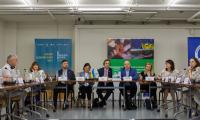On 18 June 2024, a meeting of the Association of Ukrainian Cities Section on the Development of De-occupied and Temporarily Occupied Municipalities was held with the participation of Mathieu Mori, Secretary General of the Congress of Local and Regional Authorities of the Council of Europe.
The event was attended by more than 300 participants, including mayors of villages, settlements and cities, heads of military administrations, their deputies, representatives of legislative and executive authorities and international organisations.
The work of the section was opened by:
Mathieu Mori, Secretary General of the Congress of Local and Regional Authorities of the Council of Europe;
Oleksandr Slobozhan, Executive Director of the Association of Ukrainian Cities;
Vadym Boichenko, Chair of the Association of Ukrainian Cities Section on the Development of De-occupied and Temporarily Occupied Municipalities, Mayor of Mariupol.
Panel discussion: ‘Principles of Ukraine's recovery after its Victory’
Mathieu Mori highlighted cooperation with the Association of Ukrainian Cities and the launch of the Register of Damage for Ukraine, established by the Council of Europe.
‘The purpose of the Register is to enable every citizen of Ukraine, private company and state authority to report their losses. This is the first step towards establishing a mechanism of compensation that will ensure that russia is held accountable for the damage caused to Ukraine as a result of the war,’ he said.
Olena Shuliak, Member of the Ukrainian Parliament, Chair of the Parliamentary Committee on State Building, Local Self-Government, Regional Development and Urban Planning, noted that 59,000 Ukrainian families have already received compensation for damaged housing and 6,150 families have received housing certificates for completely destroyed housing under the eRestoration programme. She also stressed the importance of cooperation with local governments to provide housing for Ukrainian citizens.
Pavlo Frolov, Member of the Ukrainian Parliament, Chair of the Temporary Special Commission of the Ukrainian Parliament on the Protection of Property and Non-Property Rights of Internally Displaced Persons and Other Persons Affected by the Armed Aggression of the Russian Federation against Ukraine, Member of the Parliamentary Committee on Budget, focused on the need to conduct an inventory of real estate that can be used to accommodate IDPs. He emphasised the need to collect, summarise and verify data on lost housing in the temporarily occupied territories, and to calculate compensation in order to conduct substantive negotiations with Western partners on sources of funding. It is important that the state military administrations that cover the occupied territories organise the collection, assessment and compilation of information on destroyed and damaged housing, as well as the estimated amount of damage.
Véronique Bertholle, Member of the Congress of Local and Regional Authorities of the Council of Europe, Deputy Mayor of Strasbourg (France), spoke about the visit of representatives of the Congress of Local and Regional Authorities of the Council of Europe on 08-09 May 2024, during which participants exchanged views on democratic governance, as well as on the priorities of current and future reforms in view of Ukraine's recovery. She noted that the Congress will continue to provide political support for Ukraine's post-war recovery and will pursue this aspiration through targeted cooperation projects and initiatives.
Iryna Kirieieva, Legal Advisor of the Register of Damage Caused by the Aggression of the Russian Federation against Ukraine, spoke about the activities of the International Register of Damage Caused by the Aggression of the Russian Federation against Ukraine and the mandate of the Register, which covers applications for compensation for both material and non-material damage caused to individuals, legal entities and the state.
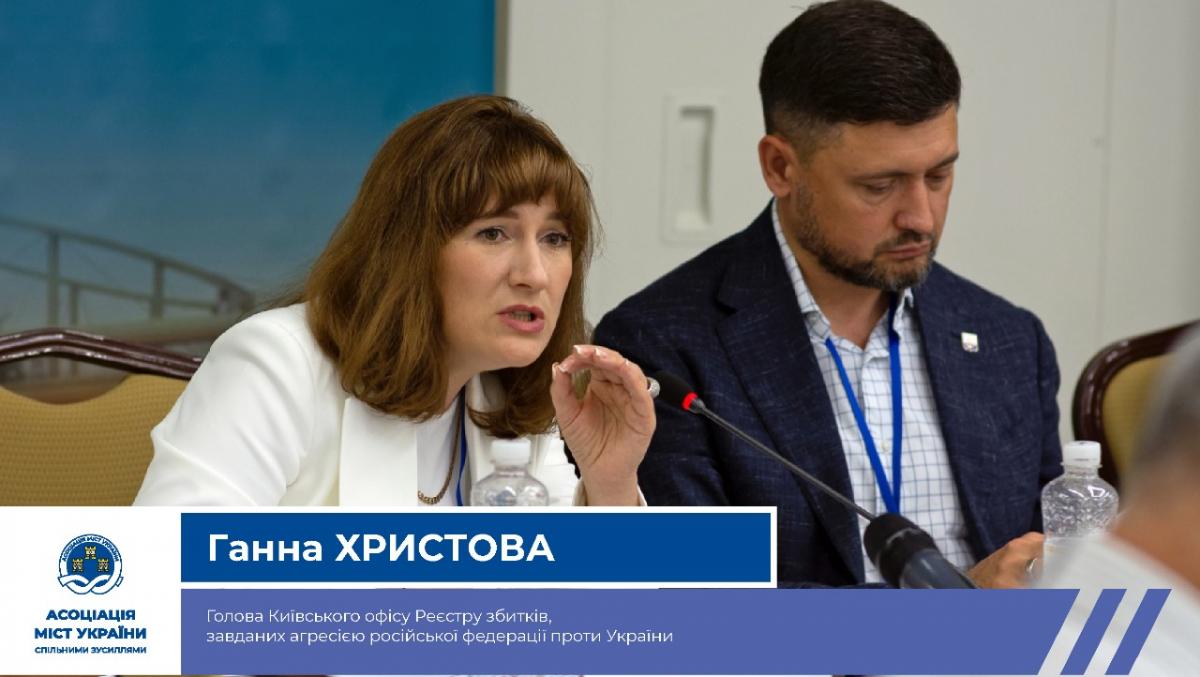
Hanna Khrystova, Head of the Kyiv Office of the Register of Damage Caused by the Aggression of the Russian Federation against Ukraine, drew attention to the creation of the Register of Damage website and stressed that the work of all participants should be coordinated.
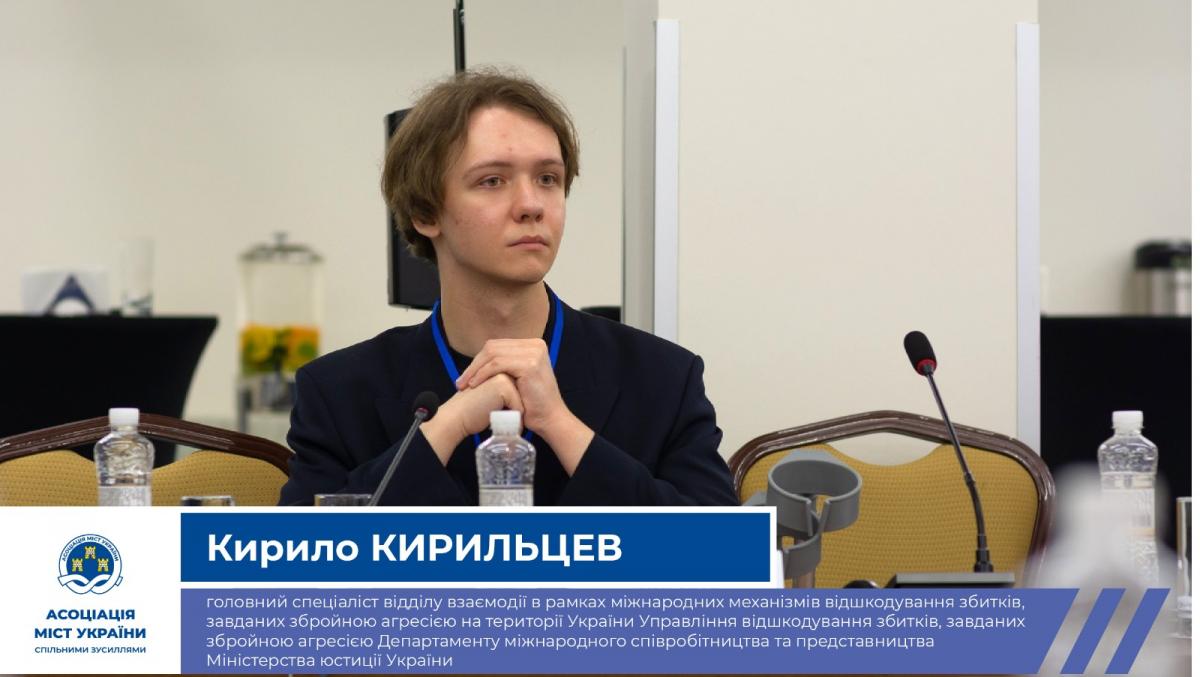
Kyrylo Kyryltsev, Chief Specialist of the Department of Cooperation within the International Mechanisms for Compensation for Damage Caused by the Armed Aggression on the Territory of Ukraine, Office for Compensation for Damage Caused by the Armed Aggression, Department of International Cooperation and Representation of the Ministry of Justice of Ukraine, noted that the Ministry of Justice of Ukraine participates in the work of the Register of Damage within its powers, assists in its functioning and ensures its operation.
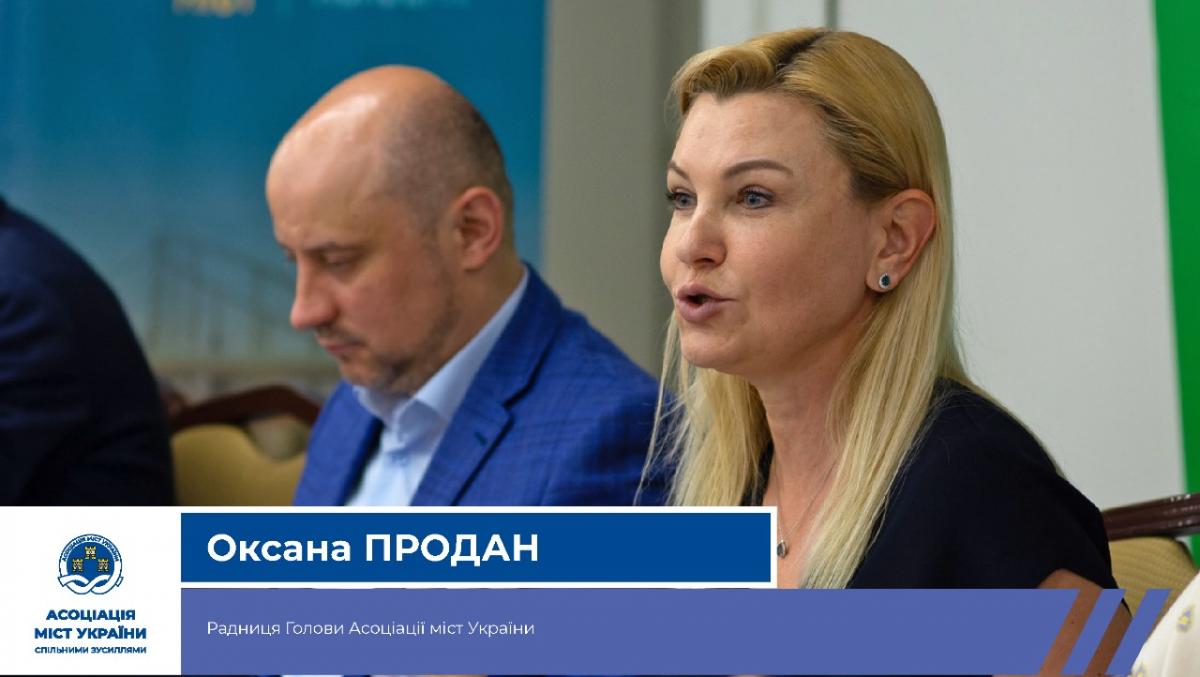
Oksana Prodan, Advisor to the Chair of the Association of Ukrainian Cities, highlighted the important role of cooperation with the Congress of the Council of Europe for the recovery and reconstruction of Ukraine. She also presented the Concept for the Recovery of Local Self-Government in Ukraine, developed jointly with European institutions and approved by the Board of the Association of Ukrainian Cities on 1 April 2024.
Panel discussion ‘Education in times of war and post-war reconstruction: de-Sovietisation of educational spaces and new approaches to learning’
Mykhailo Fedorov, Vice Prime Minister of Ukraine for Innovation, Education, Science and Technology Development, Minister of Digital Transformation of Ukraine, noted that human capital development should be a priority. He stressed the need to create the best conditions for the development and education of Ukrainians. In his opinion, this requires changing spaces – developing concepts for transforming typical schools, which should look like a small Google or Netflix office. In addition, the environment where children study must meet all safety and barrier-free standards.
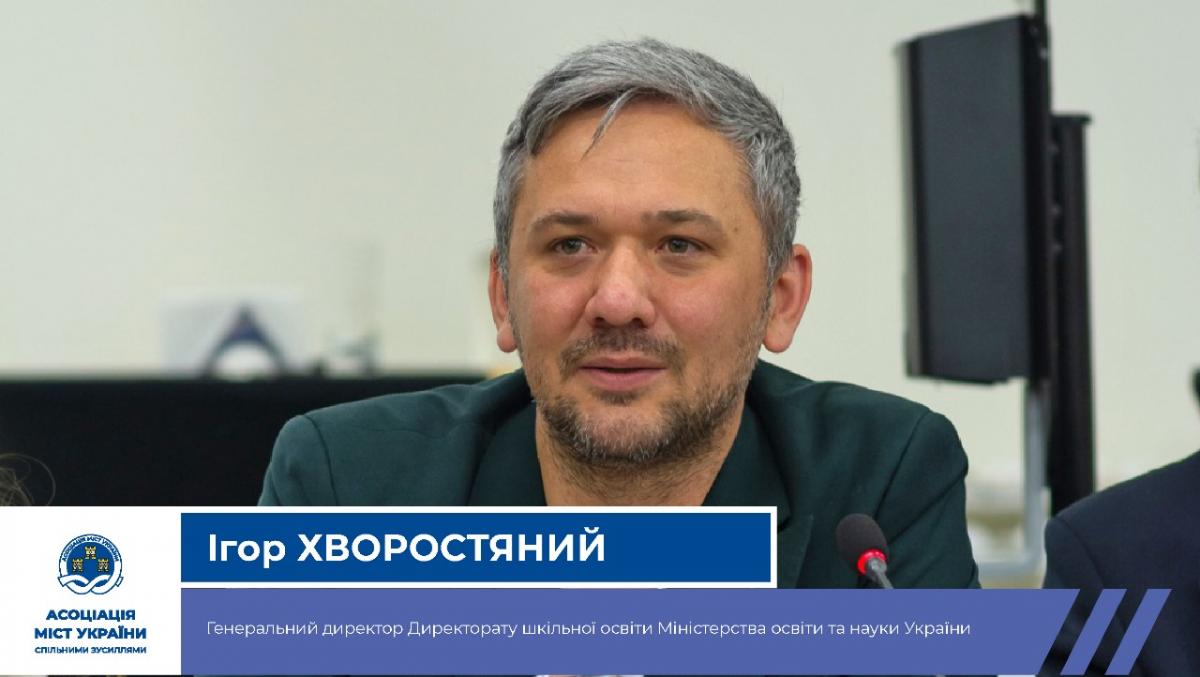
Ihor Khvorostyanyi, Director General of the School Education Directorate of the Ministry of Education and Science of Ukraine, said that to date, Russia has destroyed 191 schools and damaged more than 1,600 ones. The issue of organising and ensuring security measures is now a key one for educational institutions.
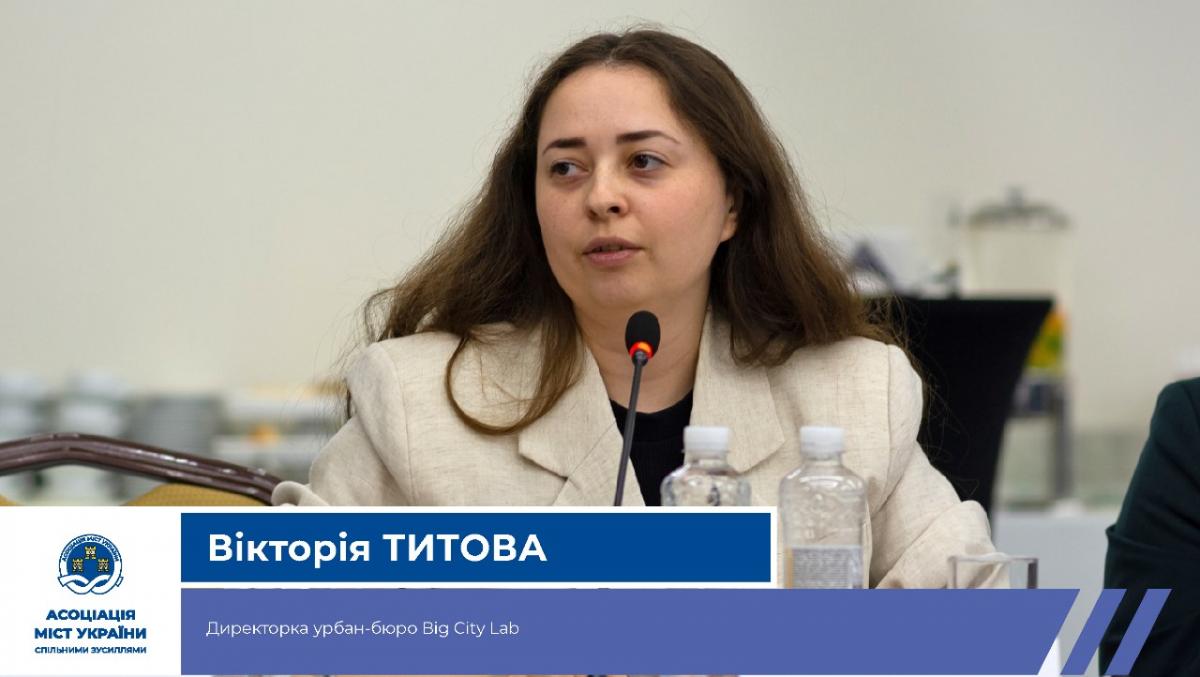
Viktoriia Tytova, Director of the Big City Lab urban bureau, presented the transformation of schools in Ukraine and the projects of the BigCity Lab urban bureau. She noted that new educational institutions must meet modern architectural criteria and requirements, namely
- be safe;
- accessible to everyone;
- multifunctional;
- reflect local identity;
- create a school community;
- use natural materials;
- provide classrooms for different learning styles;
- provide visual connections to create humane relationships;
- the school teaches how to be an independent and curious person.
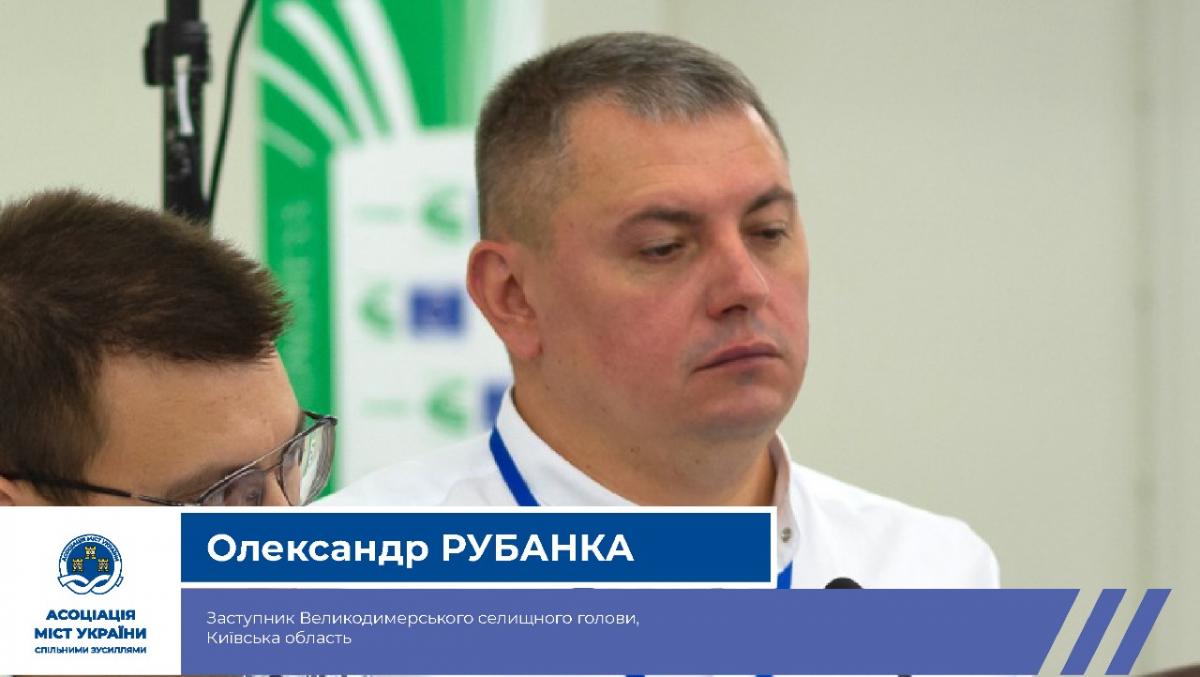
Oleksandr Rubanka, Deputy Mayor of Velyka Dymerka settlement, Kyiv region, spoke about the experience of educational institutions in the locality after the de-occupation.
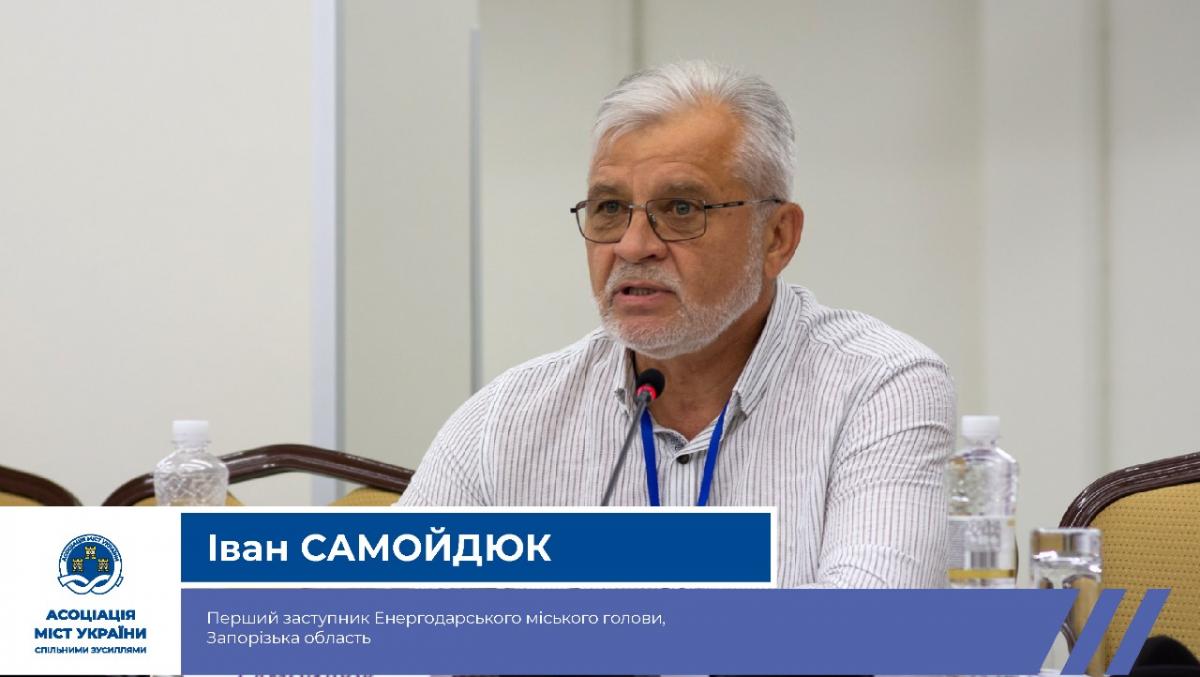
Ivan Samoidiuk, First Deputy Mayor of Enerhodar, Zaporizhzhia region, shared the experience of general education institutions in 2022-2024. He also proposed a model for the functioning and financing of educational institutions for the next academic year.
Panel discussion ‘Sharing international experience through the School of Restoring Municipalities’
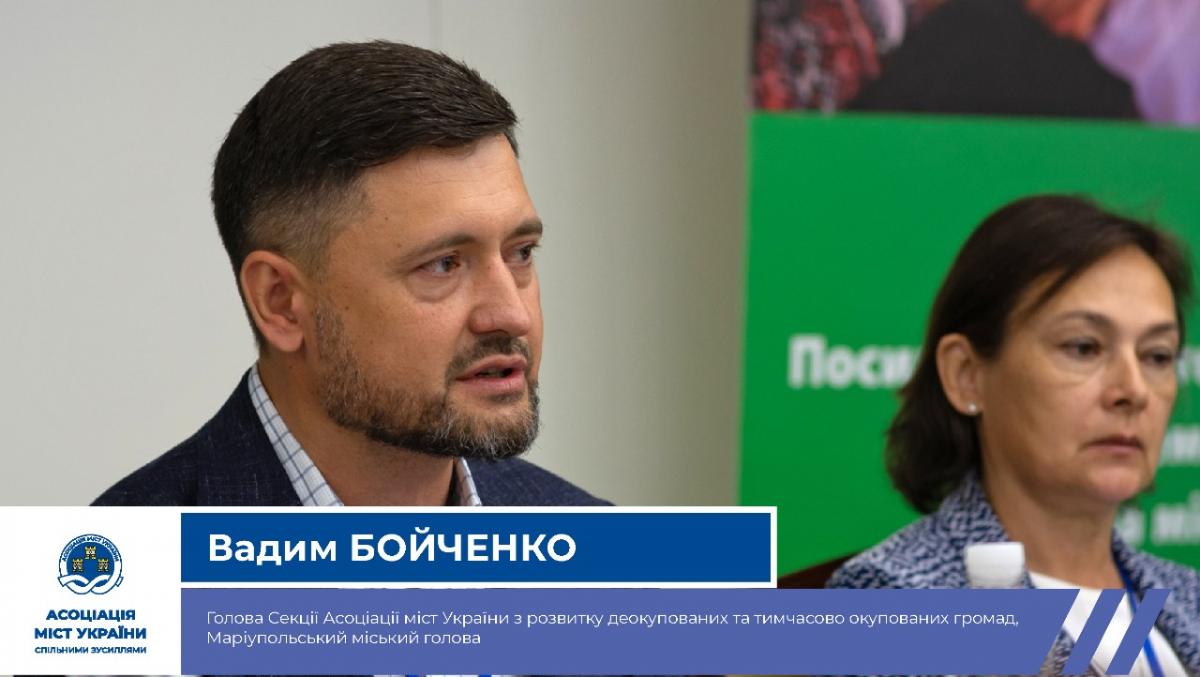
Vadym Boichenko presented the School for Restoring Municipalities project. ‘This is a modern educational programme to share experience and highlight the issues of post-war recovery of cities and territories,’ he said. It is planned that the platform will bring together municipalities affected by the russian-Ukrainian war and the international expert community.
The first course will involve 120 representatives of municipalities and governments of the temporarily occupied and de-occupied municipalities. The educational programme will consist of lectures, workshops, and field workshops, with national and international experts in economics, urbanism, city management, among others.
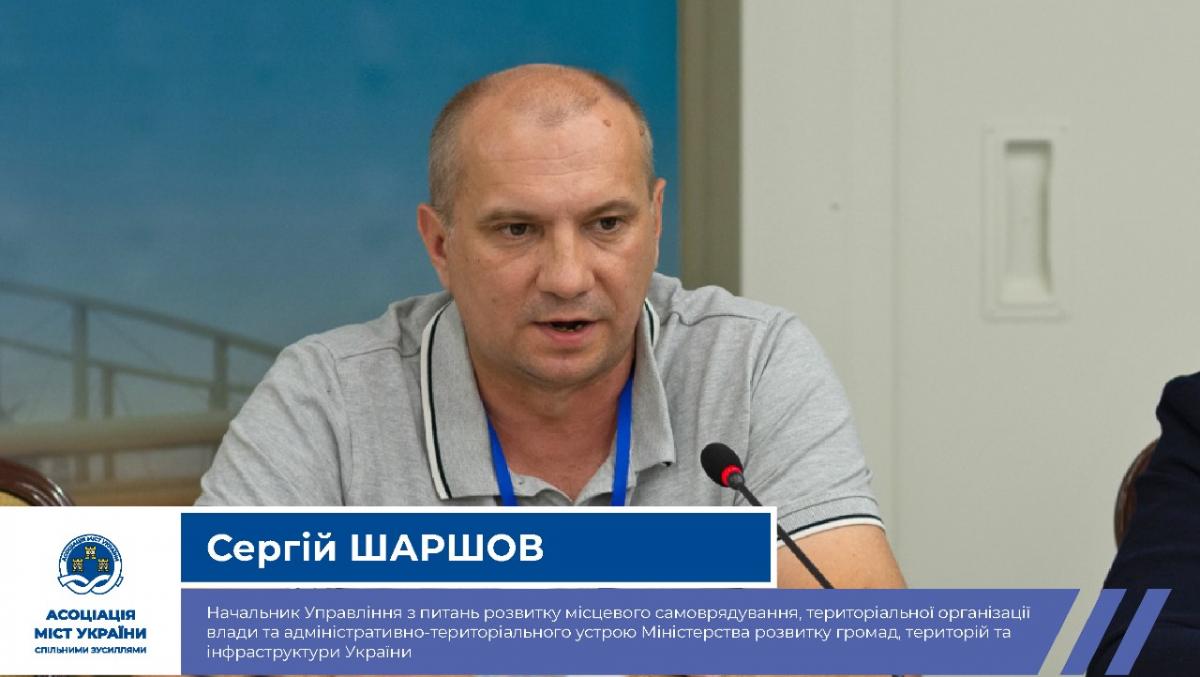
Serhii Sharshov, Head of the Department for the Development of Local Self-Government, Territorial Organisation of Power and Administrative and Territorial Structure of the Ministry for Communities, Territories and Infrastructure Development of Ukraine, stressed the importance of involving local government representatives in educational projects and initiatives, developing partnerships between Ukrainian and European cities, and applying the best international practices in education and science.
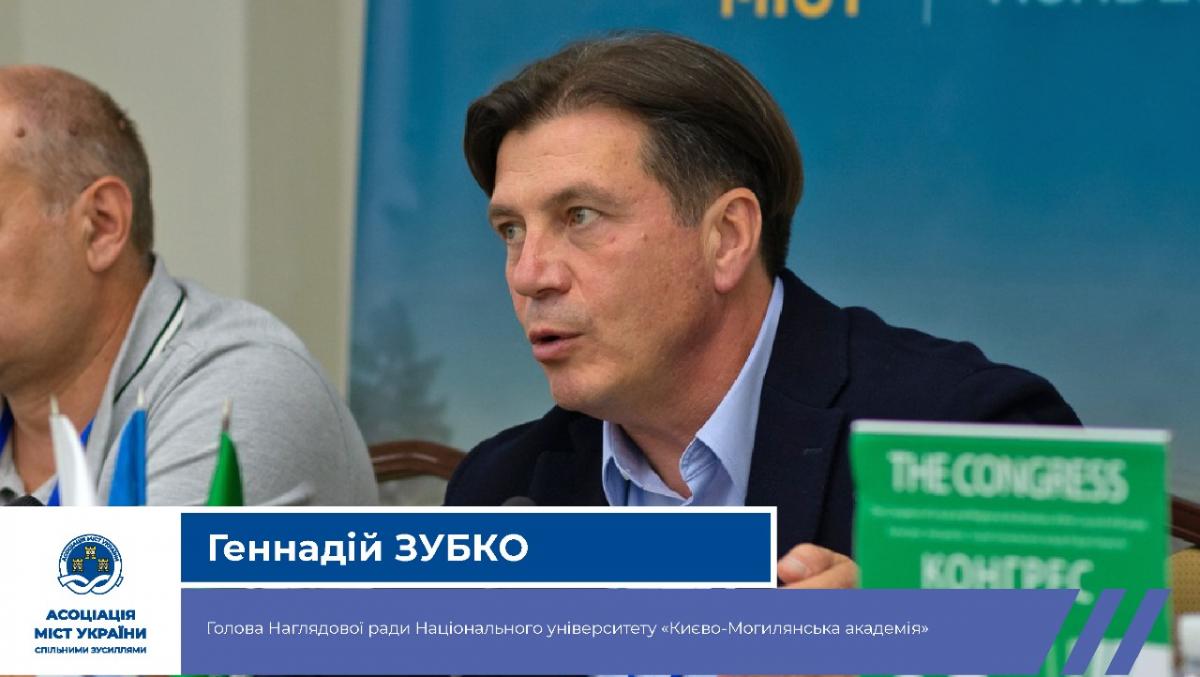
Hennadii Zubko, Chair of the Supervisory Board of the National University of "Kyiv-Mohyla Academy” (NaUKMA), spoke about the collective work of the university's scholars on the creation of a practical guide ‘Rapid Recovery Plan. Step by Step’, which provides an algorithm for developing a plan for the rapid reconstruction of Mariupol after de-occupation.
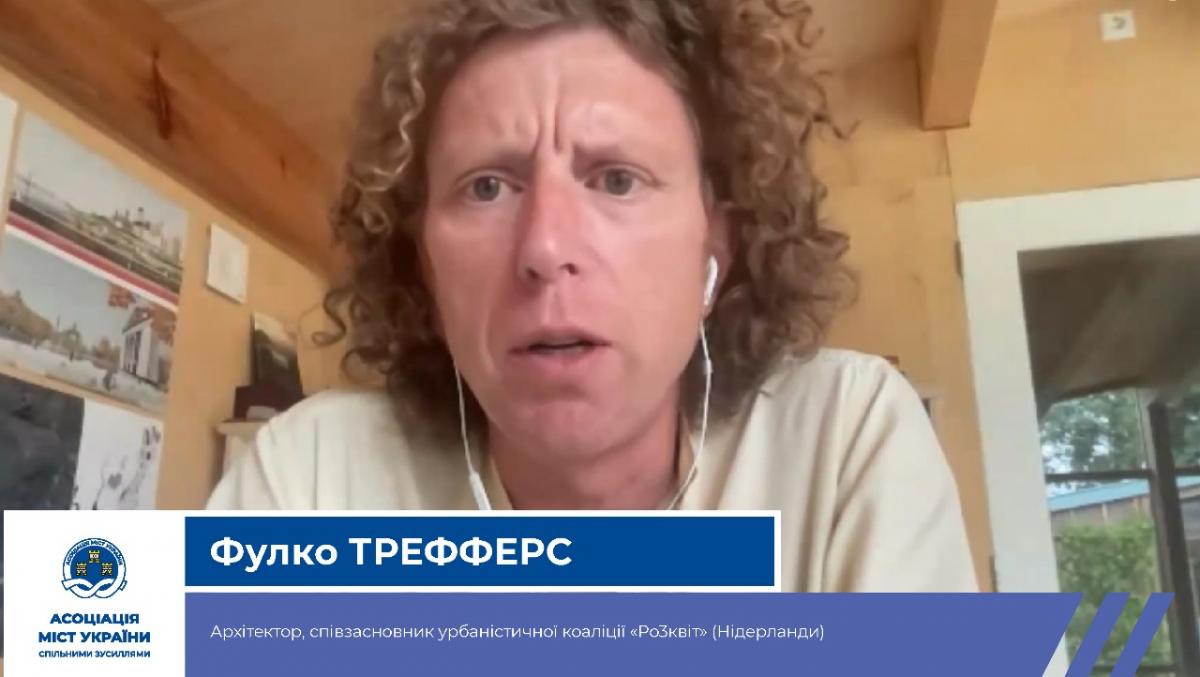
Fulco Treffers, architect, co-founder of the RO3KVIT urban coalition (Netherlands), gave a detailed account of the development of a vision for the reconstruction of Mariupol. He also drew attention to the possibility of extending the experience gained to other cities and the expediency of applying international practices and developments in rebuilding Ukraine.
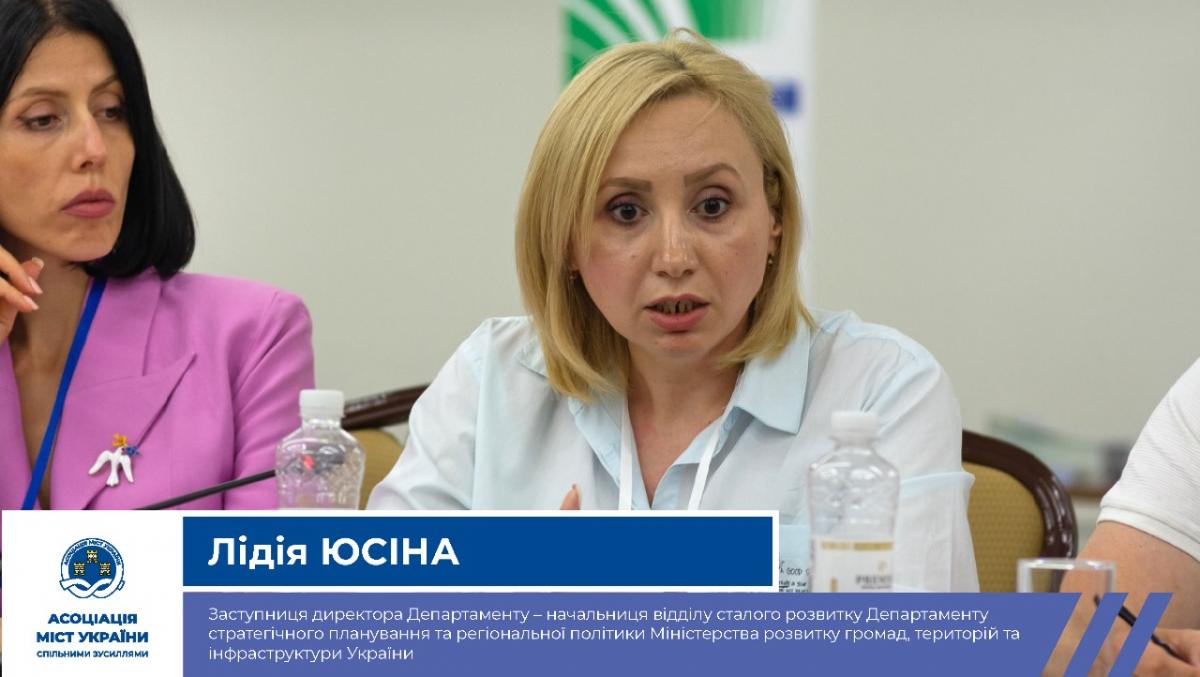
Lidiia Yusina, Deputy Director of the Department - Head of the Sustainable Development Division of the Department of Strategic Planning and Regional Policy of the Ministry for Communities, Territories and Infrastructure Development of Ukraine, shared international experience of reconstruction and opportunities for its application in Ukraine.
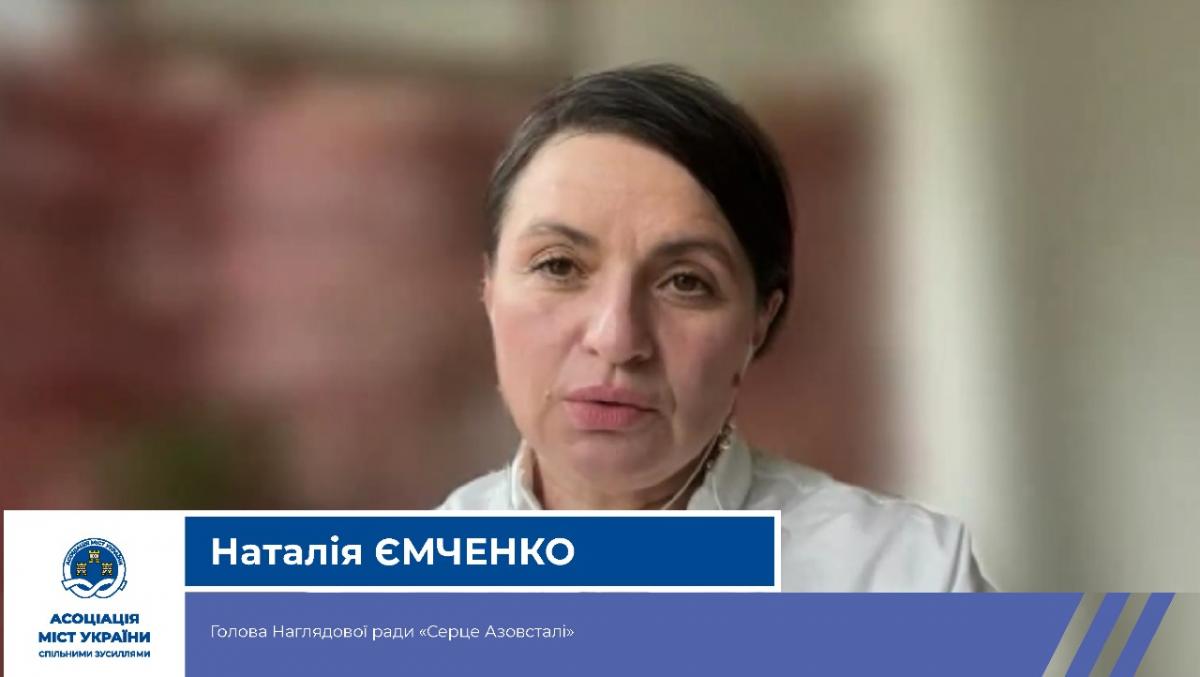
Nataliia Yemchenko, Chair of the Heart of Azovstal Supervisory Board, explained how business representatives can support various projects and initiatives to finance educational spaces. In her opinion, it is important to develop the basic principles of recovery now.
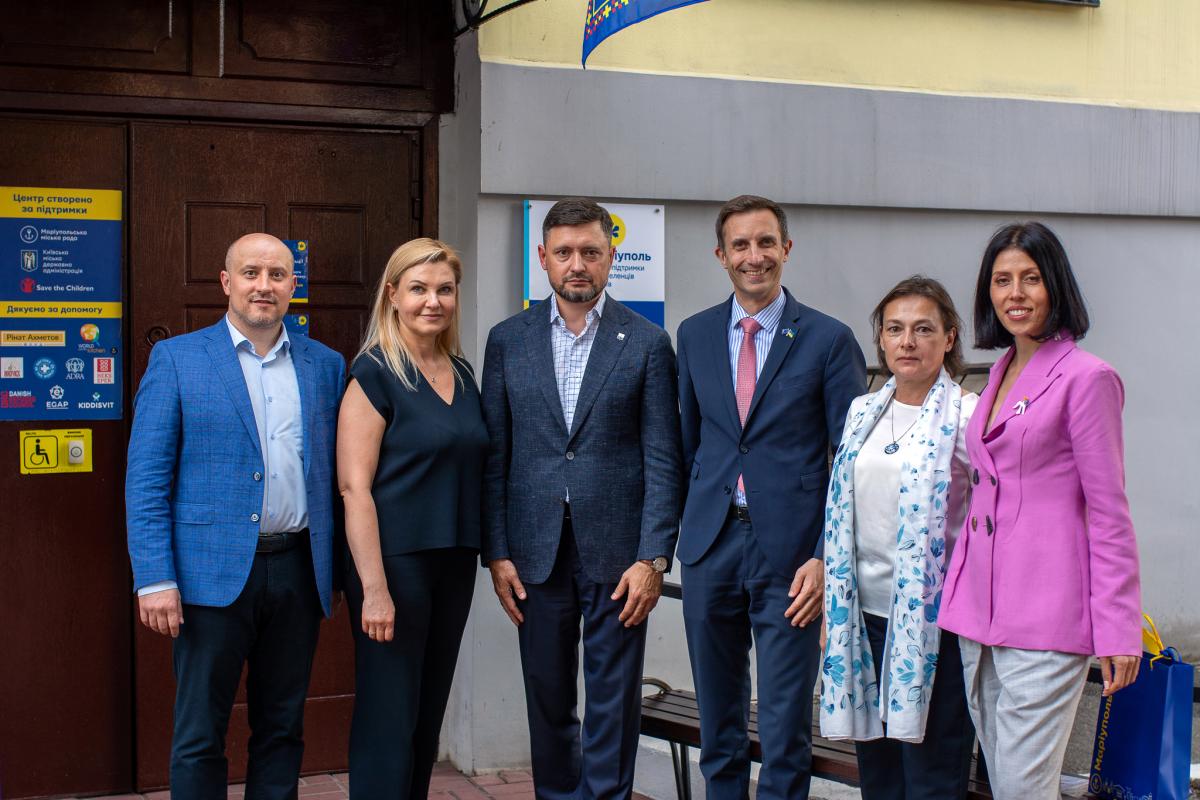
Oleksandr Slobozhan informed the participants of the meeting about the results of the work and the status of implementation of the proposals submitted at the previous meetings of the Association of Ukrainian Cities Section on the Development of De-occupied and Temporarily Occupied Municipalities held on 12-13 March 2024 and 30 May 2024, summed up the results and closed the meeting.
To read the Ukrainian version of the article, please click the link.

